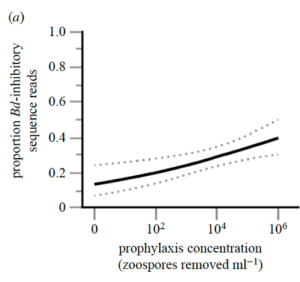
Bd metabolites induce protective skin bacterial response in tadpoles.
Woodhams lab contributes to three articles in theme issue of Philosophical Transactions of the Royal Society B.
Pereira KE, Bletz MC, McCartney JA, Woodhams DC, Woodley SK. 2023. Effects of corticosterone on immunity and the skin microbiome of Eastern Newts (Notophthalmus viridescens). Philosophical Transactions B. 378(1882):20220120.
doi: 10.1098/rstb.2022.0120.
Miller A, Gass J, Chul Jo M, Bishop L, Petereit J, Woodhams DC, Voyles J. 2023. Gnotobiotic larvae as a tool to investigate influence of the microbiome on the development of the amphibian immune system. Philosophical Transactions B. 378(1882): 20220125.
doi: 10.1098/rstb.2022.0125
Siomoko SA, Greenspan SE, Barnett KM, Neely WJ, Chtarbanova S, Woodhams DC, McMahon TA, Becker CG. 2023. Selection of an anti-pathogen skin microbiome following prophylaxis treatment in an amphibian model system. Philosophical Transactions B. 378(1882):20220126. doi: 10.1098/rstb.2022.0126
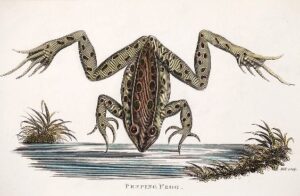
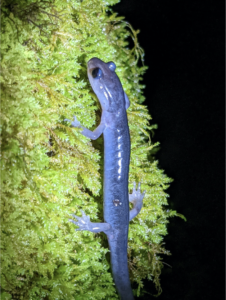

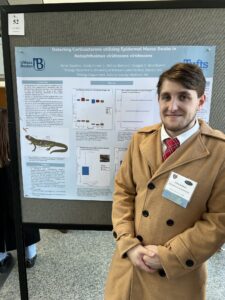
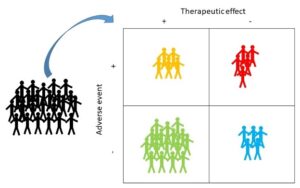
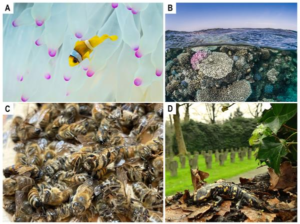 Nature Microbiology publishes a joint review encompassing the careful and responsible management of ecosystem resources using the microbiome (termed microbiome stewardship) to rehabilitate organisms and ecosystem functions.
Nature Microbiology publishes a joint review encompassing the careful and responsible management of ecosystem resources using the microbiome (termed microbiome stewardship) to rehabilitate organisms and ecosystem functions.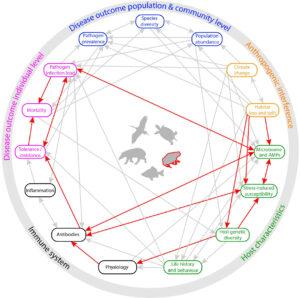 We highlight that targeted habitat-restoration strategies aiming to connect multiple classes of natural habitats (e.g. terrestrial
We highlight that targeted habitat-restoration strategies aiming to connect multiple classes of natural habitats (e.g. terrestrial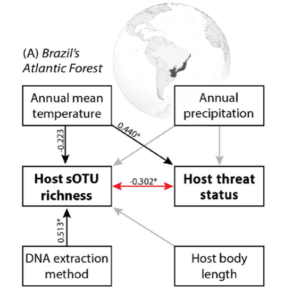 In a new study published in Animal Microbiome, the Woodhams lab contributed to the discovery that threatened amphibians carried lower skin bacterial diversity, after accounting for key environmental and host factors. The consistency of our findings across continents suggests the broad scale at which low bacteriome diversity may compromise pathogen defenses in species already burdened with the threat of extinction.
In a new study published in Animal Microbiome, the Woodhams lab contributed to the discovery that threatened amphibians carried lower skin bacterial diversity, after accounting for key environmental and host factors. The consistency of our findings across continents suggests the broad scale at which low bacteriome diversity may compromise pathogen defenses in species already burdened with the threat of extinction.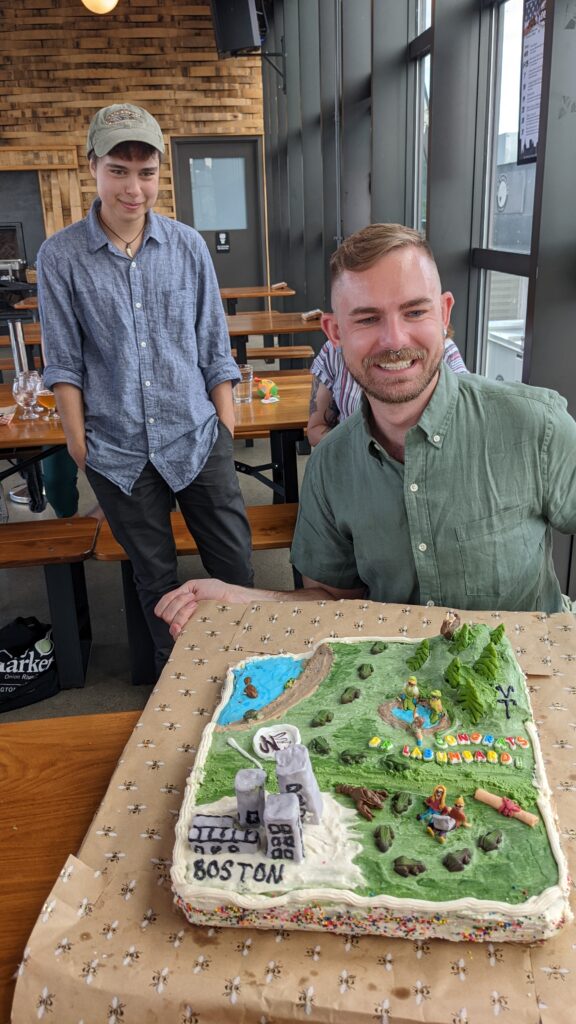 Congratulations to graduate students finishing in 2022 and advancing their careers. Dr. Brandon LaBumbard (now at Arcaea), Aura Muñiz (Ph.D. student at Purdue University), and Julia McCartney (now at GRO Bio).
Congratulations to graduate students finishing in 2022 and advancing their careers. Dr. Brandon LaBumbard (now at Arcaea), Aura Muñiz (Ph.D. student at Purdue University), and Julia McCartney (now at GRO Bio).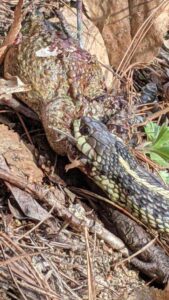 To facilitate creative disease ecology research, and to encourage compassionate solutions from the next generation of conservation researchers,
To facilitate creative disease ecology research, and to encourage compassionate solutions from the next generation of conservation researchers,